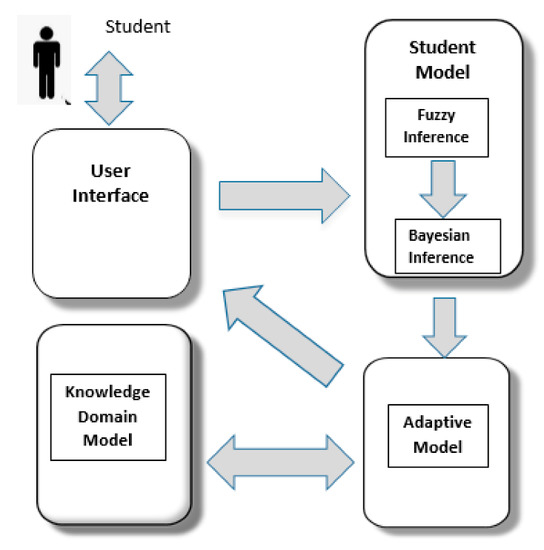Bioinformatics Tutor for Beginners
Bioinformatics Tutor for Beginners
Blog Article
The Facts About Bioinformatics Tutor Uncovered
Table of ContentsThe Bioinformatics Tutor PDFsExamine This Report on Bioinformatics TutorUnknown Facts About Bioinformatics TutorSome Ideas on Bioinformatics Tutor You Need To KnowBioinformatics Tutor Fundamentals Explained
Of the overall individuals included in the training, 80% were students from public college establishments, while the continuing to be 20% originated from personal institutions. To get approved for a certification of engagement, pupils were required to participate in at least 90% of the total training hours. As a result of this requirement, an outstanding 95% of the participants effectively obtained their certificates, having not only met the minimum participation criteria yet additionally finished all designated activities throughout the training.
During the elevation of the COVID-19 pandemic, specifically between June and August 2020, the task team was charged with arranging specialized training in bioinformatics. This training was particularly targeted at pupils from the research study team Nucleus for Research study in Applied Computer at the Federal College of Pará (UFRA) The adaptation to remote learning platforms as a result of the pandemic created a chance to discover brand-new training methodologies and digital tools that boosted both reach and effectiveness.
This training course was developed to provide an obtainable yet detailed overview of Artificial Knowledge techniques, specifically as applied in bioinformatics (Bioinformatics Tutor). This digital format made it possible for participation from pupils across Brazil, numerous of whom might not have had the chance to attend in-person sessions.
Bioinformatics Tutor Things To Know Before You Get This
A remarkable feature of this course was its emphasis on hands-on understanding. Approximately 50% of the total training hours were devoted to functional tasks where pupils built intelligent models and applications in a variety of clinical domain names, including genetics, molecular biology, and environmental data analysis. Commonly utilized structures and devices such as Spyder, Google Colab, Jupyter Notebooks, and Orange were incorporated right into the coursework. These systems made it possible for students to engage in real-time information manipulation, model training, and algorithm experimentation.
The course attracted 80 individuals in total amount. Sixty of them were connected with different higher education institutions in the state of Pará, while the remaining twenty originated from establishments situated in five other Brazilian states. This wide geographical depiction highlighted the national interest in bioinformatics and the growing need for specialized abilities in this location. By presenting Expert system in a relevant and sensible context, the effort served to link the space between concept and real-world application, supplying students with a strong foundation for future research or work in the field.
The training effort formed component of a wider academic outreach initiative understood as the Bioinformatics when traveling job. This project has, over the years, presented loads of trainees to the globe of bioinformatics and computational biology. The events held under this umbrella effort have actually occurred throughout numerous regions and years, as summarized in Table 1 (Checklist of events, areas, years, and total numbers of pupils and trainers)
One of one of the most amazing end results of the Bioinformatics when driving effort has actually been its payment to the development of decentralized research groups. Numerous of these teams, initially brought together by their engagement in training occasions, have considering that gone on to produce independent clinical study in collaboration with regional scholastic institutions. The training not only promoted clinical thinking within the context of bioinformatics however likewise stimulated collaborative relationships that prolonged past the training environment. These partnerships have led to enhanced regional clinical performance and added meaningfully to the growth of the more comprehensive bioinformatics area in Brazil.
7 Easy Facts About Bioinformatics Tutor Described
The task itself was conceived and organized by megabytes and basics RR, who oversaw the preparation and application of each step. Lectures were supplied by a multidisciplinary group consisting of megabytes, FA, EF, KP, JS, DM, SN, LP, LG, RR, ih, and ac. The very same team, excluding IH and RR, likewise functioned as tutors for the useful training components. Funding for the task was offered via the grant 88887.200562/ 2018-00 from CAPES. The writers extend their gratefulness to everybody that added to the understanding of this project, whether straight or indirectly, since its creation.
The Federal University of Pará's Workplace of Study (PROPESP/UFPA) likewise gave monetary assistance, particularly for the manufacturing of the final manuscript. The authors state no commercial or monetary conflicts of rate of interest that can have influenced the research. In addition, all opinions and interpretations shared in this article are exclusively those of the authors and do not always mirror those of their corresponding institutions, the publisher, editors, or customers involved in the publication process.

Our Bioinformatics Tutor Ideas
From a pedagogical point of view, the training approach utilized in the training was deliberately interactive. Classes were conducted in a manner that urged pupil engagement and conversation, surpassing rote memorization to explore just how concepts are established, applied in life, and examined in scholastic settings. The educational ideology concentrated on nurturing both solid and having a hard time students, providing customized support, and structure confidence through continual mentorship and persistence.

Each group, containing approximately 36 participants, was supported by three mentors-- most of whom were postdoctoral researchers with specific knowledge. These coaches not only assisted design the team tasks however also promoted their implementation, guaranteeing that each study inquiry was both properly challenging and pertinent. The objective was to offer a naturally sensible context that participants can check out with open-ended objectives and accessibility to curated datasets.
For extra insights into the method and check my site outcomes of this project-based understanding technique, readers are guided to S1 Text, which includes thorough descriptions of the instructional framework, analysis techniques, and task styles used in the training sessions.
The 8-Minute Rule for Bioinformatics Tutor
Of the total participants included in the training, 80% were trainees from public greater education organizations, while the staying 20% came from exclusive institutions. To qualify for a certification of participation, students were needed to participate in at the very least 90% of their website the total training hours. Significantly, beyond the pupils who registered in the training sessions, 7 seasoned instructors participated in delivering the programs, while three dedicated research study teachers worked with the total training process. Around 50% of the total training hours were committed to practical activities where trainees developed smart versions and applications in a variety of scientific domain names, including genetics, molecular biology, and ecological information analysis. The training not just promoted clinical reasoning within the context of bioinformatics yet likewise stimulated collaborative relationships that extended past the training setting.
Report this page